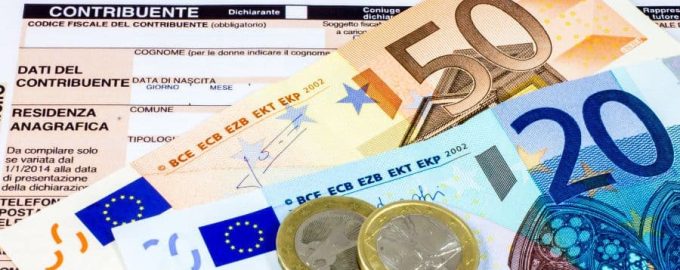Property Tax and Income Tax in Europe: A Comprehensive Overview
Europe, with its rich history, diverse cultures, and vibrant economies, remains a key destination for expatriates, investors, and business professionals. The tax system in Europe varies significantly from country to country, making it essential to understand the property tax and income tax regimes to fully leverage the opportunities available. In this article, we’ll break down the property tax and income tax systems across Europe, highlighting the benefits and challenges for individuals and businesses.
1. Property Tax in Europe
In Europe, property taxes are generally levied on both residential and commercial real estate, though the rates and types of taxes can vary widely by country and even by region within a country.
Types of Property Taxes in Europe:
- Property Ownership Tax: Many European countries charge an annual property tax based on the value of the property, which can either be determined by the market value or a calculated assessed value. For example, in countries like France, the taxe foncière is an annual property tax levied on land and buildings, while in Italy, a similar tax, IMU, applies to real estate, with higher rates for luxury properties.
- Capital Gains Tax: When selling a property, owners may be subject to capital gains tax (CGT) on the profit made from the sale. The rates and exemptions for capital gains tax depend on the country and how long the property has been held. For example, in Spain, CGT on the sale of property is taxed at progressive rates, while in Portugal, there are exemptions or reductions for primary residences under certain conditions.
- Wealth Taxes: Some European countries, like Switzerland, Norway, and Spain, impose wealth taxes that consider the total value of an individual’s assets, including real estate. These taxes are usually based on the net worth of the individual, and the property value may contribute to the tax liability.
- Property Transfer Tax: In many European countries, buyers are required to pay property transfer tax (or stamp duty) when acquiring property. The rates can range from 1% to 7% of the property value depending on the country. For instance, Belgium and France levy property transfer taxes on residential and commercial real estate purchases.
Notable Property Tax Systems in European Countries:
- France: Property owners pay annual taxes such as taxe foncière and taxe d’habitation, although the latter is being phased out for primary residences.
- Spain: Property taxes in Spain include IBI (Impuesto sobre Bienes Inmuebles), an annual property tax based on the cadastral value of the property. Property owners may also face capital gains tax when selling their property.
- Germany: Known for its Grundsteuer (property tax), Germany’s property tax is calculated on the value of the land and the buildings on it. The tax rates differ between federal states and depend on the value of the property.
- United Kingdom: In the UK, property taxes include Council Tax for residential properties and Stamp Duty for property transfers. Commercial properties are subject to business rates.
- Portugal: IMI (Imposto Municipal sobre Imóveis) is the annual property tax, and IMT (Imposto Municipal sobre Transmissões) is the property transfer tax.
2. Income Tax in Europe
Income tax rates in Europe are generally progressive, meaning that the rate increases as income rises. The exact rates vary significantly from country to country, with some European nations offering lower taxes and others imposing higher rates in exchange for expansive public services. Below are key details regarding income tax systems in Europe.
Key Features of Income Tax Systems in Europe:
- Progressive Tax Rates: Most European countries have progressive tax systems, with tax rates increasing as income rises. For instance, in Sweden, tax rates can reach up to 60% for high earners, whereas Ireland has a top tax rate of 40% for income exceeding €36,800.
- Corporate Income Tax: Corporate tax rates in Europe vary. Countries like Ireland offer low corporate tax rates (12.5%), which has attracted many multinational corporations. On the other hand, France and Germany impose higher corporate tax rates of around 33% and 30% respectively.
- Social Security Contributions: In addition to income tax, many European countries also require social security contributions, which fund public services such as healthcare, pensions, and unemployment benefits. These contributions are typically shared between the employee and employer. For example, Germany has high social security contributions, which can increase the overall tax burden.
- Dividends and Investment Income: In several European countries, dividends, capital gains, and other forms of investment income are subject to tax. Countries like Luxembourg and Switzerland may offer favorable tax treatment for investment income, whereas in France and Spain, dividends are taxed at the standard income tax rates.
Income Tax Systems by Country:
- Sweden: Known for its high taxes and expansive social welfare systems, Sweden’s income tax rates can reach up to 57.19% for high earners. The tax is levied both on the national and municipal levels.
- France: France has a progressive income tax system with rates ranging from 0% to 45%, depending on income levels. There is also a social contribution on investment income and a wealth tax on high-net-worth individuals.
- Germany: Germany’s tax system is progressive, with rates ranging from 14% to 45%. In addition to income tax, individuals also pay for social security, healthcare, and pensions. Corporate tax rates are approximately 30%.
- United Kingdom: In the UK, income tax is progressive, with the rates ranging from 20% to 45%. The UK also has a national insurance system, which acts as a social security contribution for workers and employers.
- Switzerland: Switzerland is known for its relatively low income tax rates, which can vary by canton. The federal tax rate is around 11.5%, but cantonal taxes can increase the total tax burden, with some cantons offering tax incentives for high earners or corporations.
- Netherlands: In the Netherlands, the income tax rate is progressive, ranging from 9.45% to 49.5%. The country also has various tax deductions, especially for research and development activities, which can benefit businesses.
Tax Benefits and Exemptions:
- Tax Treaties: Many European countries have double taxation treaties to ensure that residents are not taxed twice on the same income. This is beneficial for individuals and businesses with international income streams.
- Tax Exemptions for Certain Income Types: Some countries offer exemptions or reductions for certain types of income, such as capital gains, dividends, or inheritance. For example, in Portugal, foreign pension income is often subject to tax exemptions for new residents under the Non-Habitual Resident (NHR) regime.
3. Other Taxes in Europe
While income tax and property tax are the primary forms of taxation in Europe, several other taxes may apply depending on the country:
- Value Added Tax (VAT): Most European countries have a Value Added Tax (VAT) system. The VAT rate typically ranges from 17% to 27%, with countries like Sweden and Denmark charging among the highest rates in the EU.
- Inheritance and Estate Taxes: Many European countries impose inheritance taxes or estate taxes. For instance, France has relatively high inheritance tax rates, particularly for non-family members. Conversely, Switzerland and Belgium offer more favorable inheritance tax rates, depending on the relationship between the deceased and the heir.
Conclusion: Tax Efficiency in Europe
Europe offers a wide variety of tax systems and benefits depending on the country, making it an attractive region for both business owners and individuals looking to optimize their tax liabilities. While property tax and income tax rates can vary significantly, many European countries provide opportunities for tax planning and optimization, especially for those considering international investments or residency.
Whether you’re looking to invest in property, start a business, or relocate for employment opportunities, understanding the tax implications in each European country is crucial for making informed decisions and maximizing your wealth. Always consider seeking professional advice to navigate the specific tax regimes, especially if you are an expat or plan to invest across multiple jurisdictions.
Check out

